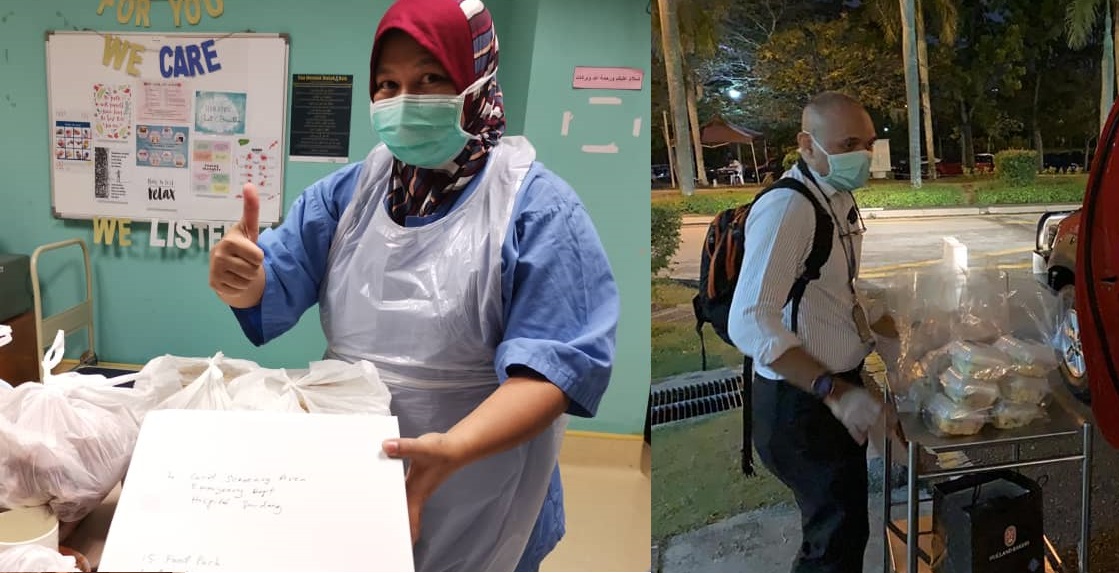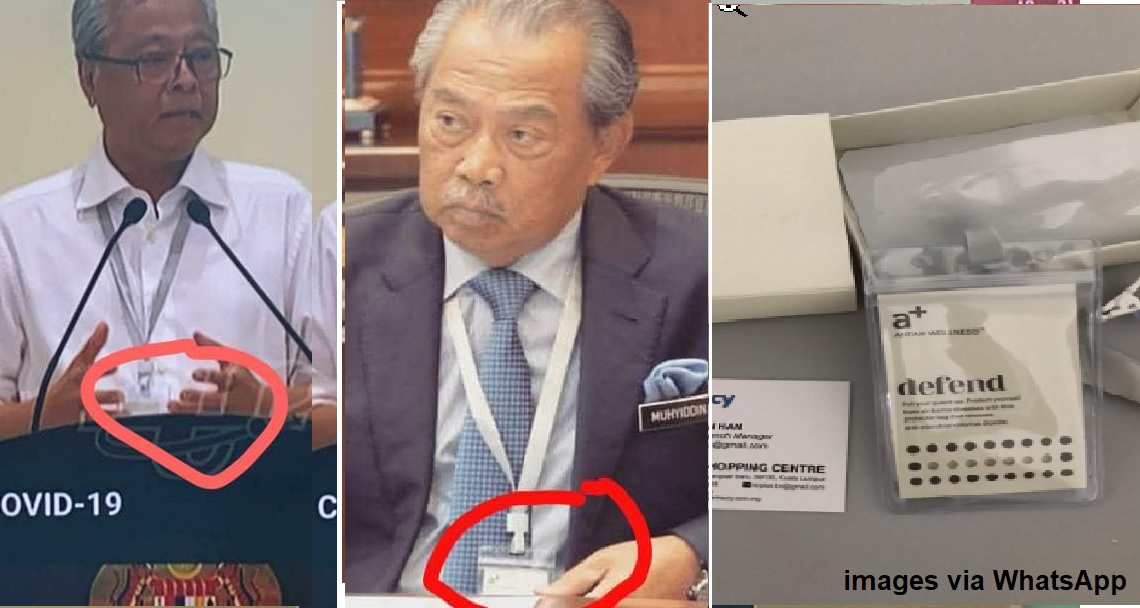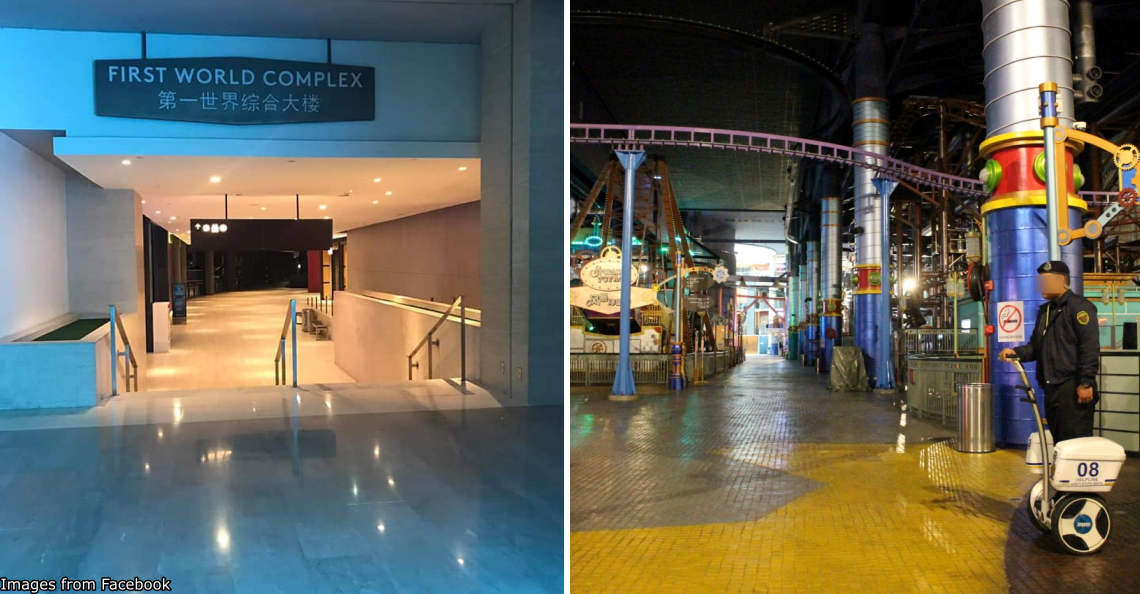Here’s why the M’sian govt increased face mask prices despite the Covid-19 pandemic

- 990Shares
- Facebook911
- Twitter8
- LinkedIn6
- Email12
- WhatsApp53
We haven’t been able to catch a break from the Covid-19 pandemic since early this month, which has already infected 1,306 people and taken 11 lives in Malaysia, at the time of writing. Plus, Prime Minister Muhyiddin Yassin’s placed Malaysia under a 14-day Movement Control Order (MCO) and pretty much begged us to stay at home for the duration. So now, everyone’s probably like…
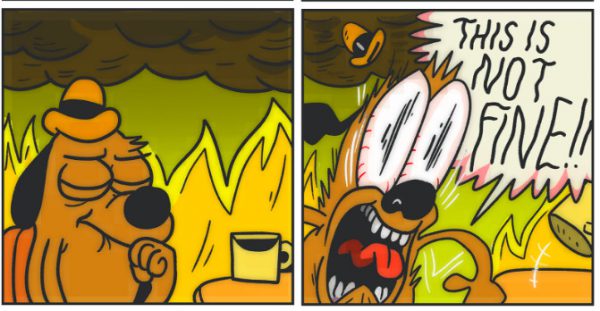
But there’s also something else that you might have missed, amidst the hustle and bustle of panicking at the Tesco and rushing to balik kampung even though you’ve kinda been told not to. And that’s the exorbitant price hike of face masks and hand sanitizers in certain shops and pharmacies. For example, some have said that they found face masks sold at RM6 per piece and hand sanitizers at RM300 for 30ml!
Now you might be thinking: eh come on la, these things no control one meh?
Well, first, you have to understand that…
Private healthcare is not controlled, and that includes pharmacies
We wouldn’t dare to think ourselves as professionals in these things, so we contacted the President of the Malaysian Pharmaceutical Society (MPS) Amrahi Buang and executive director at Malaysian Association of Pharmaceutical Suppliers (MAPS) Dr. Choe Tong Seng to tell us things, and basically, that’s what they said.
“We have a unique healthcare system in Malaysia – divided into public and private.” – Amrahi, in an interview with Cilisos

According to Amrahi, there’s some sense of control on prices and distribution in the public sector, due to it being under the jurisdiction of the Health Ministry. Not just that, there’s also something called central procurement process controlling the public sector, which is actually implemented by our Finance Ministry. Basically, it allows for cost rationalization on health products and better transparency and efficiency in procuring them.
And that’s why you get a more standard price when you buy face masks, or even hand sanitizers, in a place like a public hospital or community pharmacy. Plus, it also doesn’t hurt that the Health Ministry has had concession contracts with pharmaceutical companies like Pharmaniaga, according to Amrahi. Pharmaniaga basically does things like:
- Manufacturing of pharmaceutical products
- Warehousing and distributing medical products
- Research and development of health products
- Trading and installing medical equipment in hospitals and pharmacies
But when it comes to the private sector…

Unlike the public sector, private healthcare, which includes pharmacies, is apparently not controlled by anybody or anything at all, except for a Private Healthcare Facilities and Services Act 1998. The objectives of the Act are:
- Impose and ensure minimum standards in the private healthcare facilities and services
- Ensure professionalism among all healthcare workers
- Ensure integrity among healthcare
- Ensure quality of healthcare facilities and services
- Address social and national interests
However, apart from providing licensing for private hospitals and other healthcare facilities, the Act doesn’t really do much else, let alone pricing. There’s apparently also no specific laws to regulate prices in the private sector, unless ordered by the Health Ministry itself.
“In the private sector, there’s essentially no control at all, which is why the community’s having this problem – going to different pharmacies and seeing different prices for products.” – Amrahi
Speaking of Health Ministry orders, Dr. Choe told us that, as of 19th of March, 2020, they’ve been ordered to cap the prices of face masks sold in pharmacies, hospitals, and other retailers, public or private, as follow:
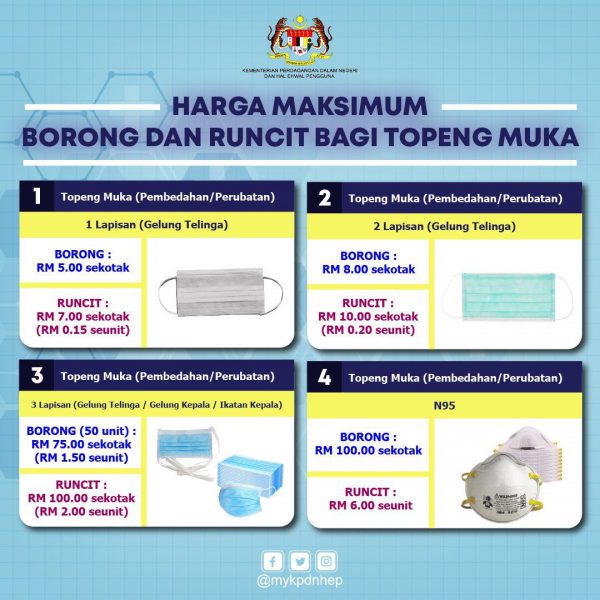
And a government document sighted by Cilisos confirms this. The new prices have also been recently announced by the Domestic Trade and Consumer Affairs Ministry.
However, while the government is actively controlling the prices of face masks, Amrahi told us that it doesn’t apply to online sales, because it’s difficult to track them down. There’s also apparently no capped prices to hand sanitizers, due to the variety out there. So right now, Amrahi told us that the average price for a generic hand sanitizer can be anywhere between RM10 and RM12 for 50 milliliters or between RM35 and RM40 for 500 milliliters.
Even then, that’s not really the real problem here. The real problem right now is…
There’s not enough supply of these products to meet public demand
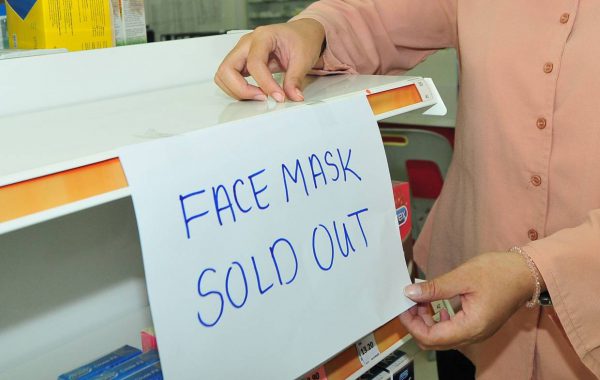
Price hikes aside, the main problems that suppliers are facing now is that they seem to be unable to manufacture enough face masks to meet the heightened public demand. If you go to a pharmacy right now, it’s more than likely that you’ll find empty shelves, instead of face masks.
Due to the unexpected outbreak of the Covid-19 outbreak, a lot of people have been clamoring to pharmacies and other general stores to snatch face masks off the shelves as a way to prevent from getting infected. Because of this, local manufacturers in Malaysia are finding it difficult to produce more masks, because they’re quickly running out of raw materials.
And it certainly didn’t help that a lot of their raw materials are apparently sourced from China, which had previously banned its local manufacturers from exporting their products.
“Malaysia has four manufacturers that I know of, and the demands are up to capacity. The demand is higher than production number, so they can’t produce enough.” – Dr. Choe, in an interview with Cilisos
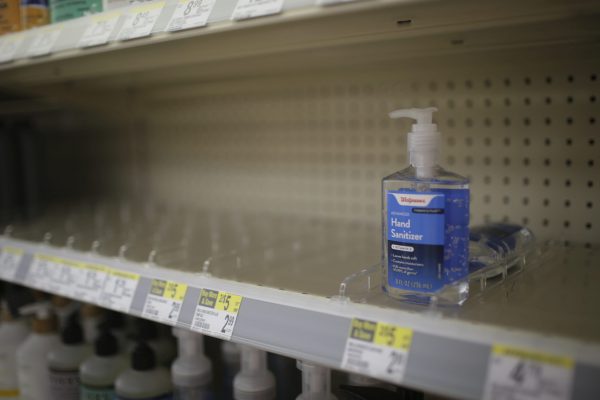
And hand sanitizers are kinda facing the same problem as well. ENC Nationwide, a hand sanitizer manufacturer in Malaysia, claimed that demands had jumped from the usual 100 drums to 300 drums per month since January this year. That’s equal to 20,800 litres!
The demands were said to have driven up the ethanol price from suppliers around the world, almost four times its original price, so that already makes it difficult for them to source ethanol. Plus, the bottles are supposedly also in short supply.
“When you talk about hand sanitizers, there’s an increase in demand for raw materials. They’re also having problems with the bottles. When there’s less supply, they jack up the price.” – Dr. Choe
And that’s where price comes back in, because with the lack of raw materials locally or from wherever they’re sourced, then manufacturers seemed to have to look elsewhere for materials.
“Now we source all over the place because we’re facing shortages nowadays, so we try to source it everywhere. Business has been disrupted. Wherever we can get it, we get it.” – Dr. Choe
And when they have to source it from overseas, it means the prices are different as well. On top of that, the weakened Ringgit Malaysia against foreign currency also didn’t help, especially the US Dollar, due to the Covid-19 and the drop in oil price.

According to Dr. Choe, the instability of the Ringgit and sourcing from overseas means the prices of face masks and hand sanitizers would be different when they arrive, possibly even higher than the government-capped price.
“With the Ringgit weakening, we need more Malaysian money to buy from overseas. That’s why sometimes you find pharmacies and other retailers selling these things at high prices.” – Dr. Choe
So while stocks are running out, what can be done?
Don’t wear face masks if you don’t need to
…and don’t even use hand sanitizers if you’re at home anyway.
Well, according to Dr. Amrahi anyway.
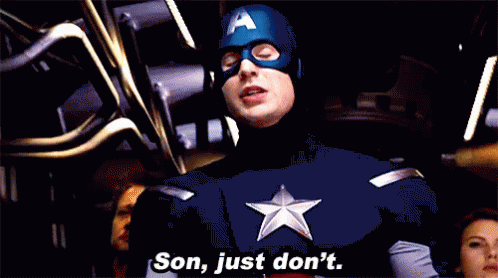
Apparently, not everyone has to wear face masks, because it doesn’t really do anything. It doesn’t guarantee that you won’t be infected with Covid-19, because the virus might still penetrate through the masks. There are only two types of people who need to wear face masks:
- Those who actually have the symptoms and have to protect others from getting it
- The frontliners, like hospital staff, who are actually handling the patients
This is a claim also confirmed by Health Ministry director-general Dr. Noor Hisham Abdullah. However, the National Security Council’s advised that we do wear masks, especially when visiting crowded places like supermarkets. But still, given that we’re kinda running low on these items and frontliners are risking their lives to treat Covid-19 patients, maybe it’s wise to leave some for the frontliners.
“Please do not use the mask unless you have to. The mask and PPE (personal protective equipment) should be reserved for the frontline worker. That is our first priority, more so when we are running short of PPE now.” – Dr. Noor Hisham, as quoted by Malaysiakini
And when it comes to hand sanitizers, Amrahi said that it’s not really necessary unless you’re going out. When you’re at home, he said you only have to wash your hands with soap. And when he said wash your hands with soap, he meant lather your hands and wash them properly.
These doctors even did a hand-washing dance to show you how to do it properly:
Previously, the capped price for three-ply masks, which are more commonly used than others, were capped at RM0.80 per piece. But now, Dr. Choe told us that the government’s heard some suppliers’ grievances, like the weakened Ringgit and running out of raw materials locally, and have raised the capped retail price to RM2 per piece.
“By allowing face masks to be sold at RM2, we hope to encourage local manufacturers to produce more. For exporters, this price will help cover the costs to bring the product into the market. With this, we hope to increase the availability of face masks.” – Domestic Trade and Consumer Affairs Minister Alexander Nanta Linggi, as quoted by The Star
However, despite efforts in helping the manufacturers, some of the public have complained that the capped prices were too high. So Defense Minister Ismail Sabri Yaakob had mentioned that the government will review the prices again soon.
Regardless of all that…
You’ll still be fined if you sell face masks above maximum prices
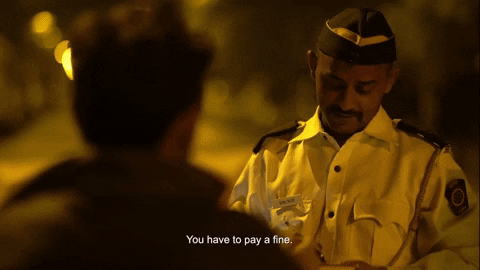
Even before raising the capped price for face masks, it’s already been announced that retailers selling face masks above the maximum price will be fined. In as early as February, before the whole thing kinda blew up in our faces, the Domestic Trade and Consumer Affairs Ministry has already detected 19 of such offences with a compounded value of RM67,400.
“KPDNHEP enforcement officers will enhance monitoring of business premises selling masks until the 2019 Coronavirus (2019-nCoV) issue can be curbed to address any sales beyond the control price or unreasonable price hikes.” – Former Domestic Trade and Consumer Affairs Minister Saifuddin Nasution, as quoted by Malaymail
In addition, to address the issue of face mask shortage in Malaysia, China’s repaying the favor of that time when we donated face masks to them during their time of crisis, by donating 100,000 face masks to us, which has just arrived on the 20th of March, 2020. Muhyiddin also said that these face masks will distributed for free to all Malaysians. And for now, our country’s also banned face mask exports to ensure we have enough supplies.
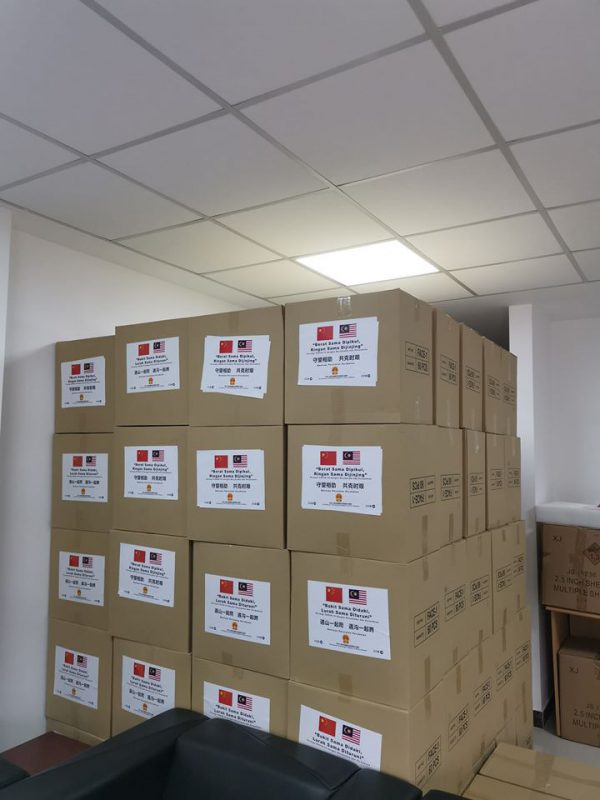
As you can probably already tell, our government’s doing all it can to curb the Covid-19 pandemic amidst the MCO.
You can also do your part by not hoarding face masks and leaving some for the more vulnerable ones, like the elderly and those standing at the frontline. And if you notice a shop that’s selling face masks at higher than RM100 per box, you should also lodge a complain to the Domestic Trade and Consumer Affairs Ministry and have them deal with it.
And if you’re feeling the symptoms of Covid-19, there are two tests you can take.
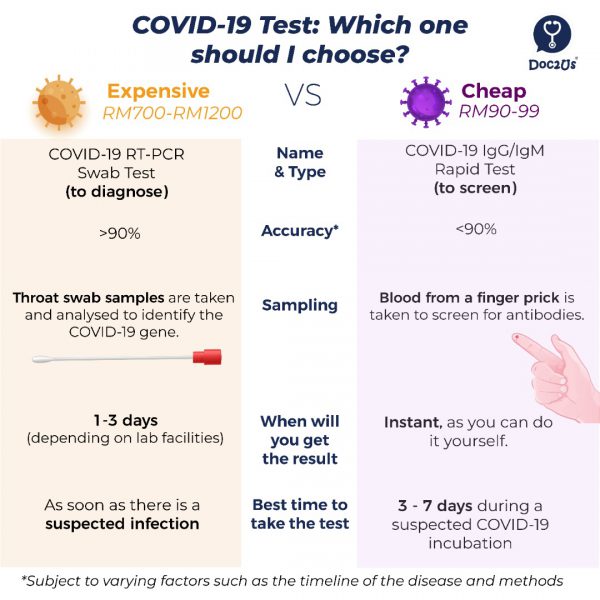
But before all that, just remember to wash your hands! With soap. Keep it clean, y’all.
- 990Shares
- Facebook911
- Twitter8
- LinkedIn6
- Email12
- WhatsApp53

